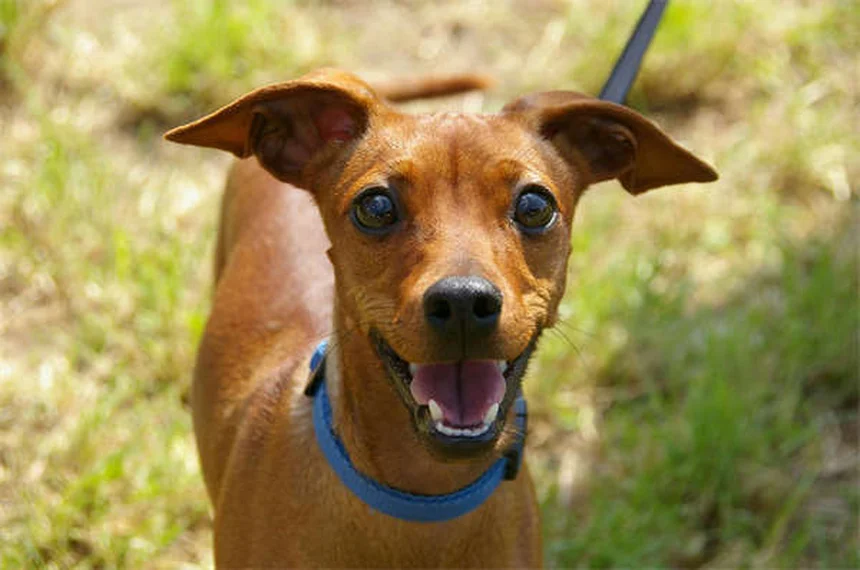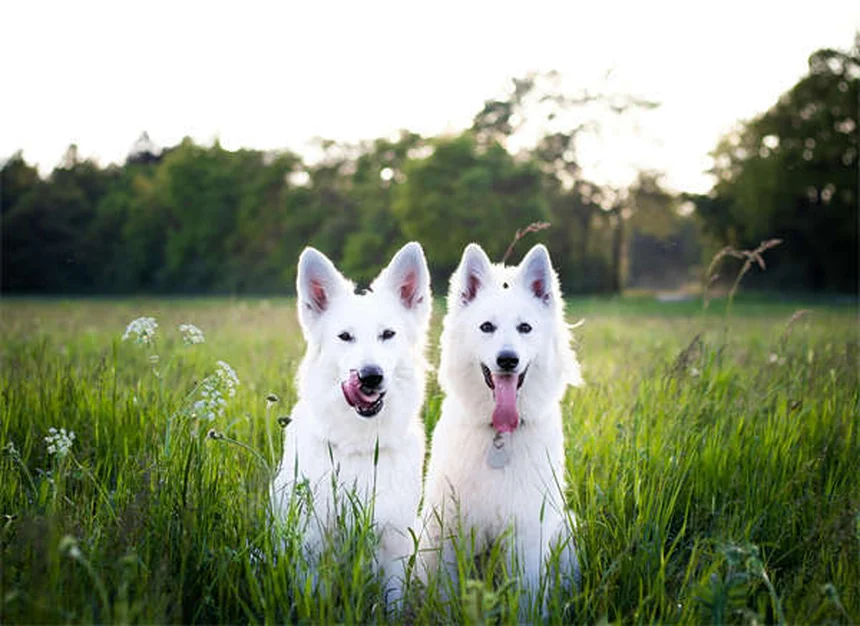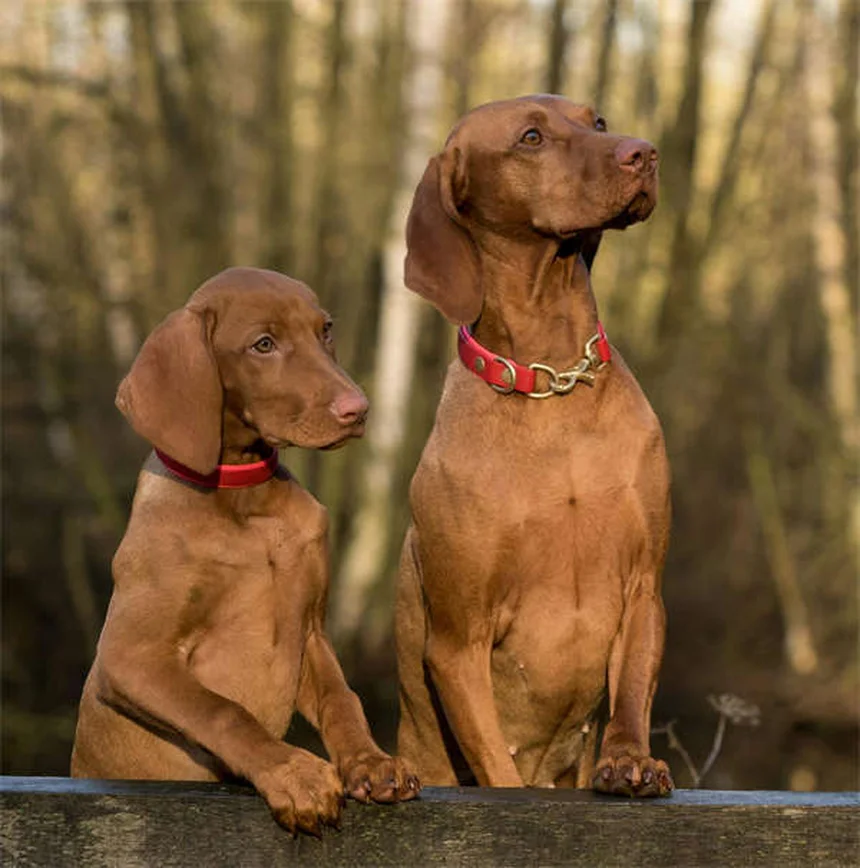Do dogs get embarrassed? The short answer is: No, dogs don't experience embarrassment like humans do! While we often interpret certain dog behaviors as shame or humiliation, science shows our furry friends simply don't have the same complex emotional capacity for these feelings. That guilty look when you catch them digging in the trash? It's actually an appeasement gesture - their way of saying Please don't be mad! rather than I'm so embarrassed.As a dog owner myself, I used to think my labrador felt ashamed when he'd hide after knocking over the garbage. But after researching canine behavior, I learned we humans tend to project our emotions onto our pets. The truth is, dogs live wonderfully in the moment without dwelling on social blunders. In this article, we'll break down exactly what's happening when your pup shows those embarrassed behaviors and how you should really respond.
E.g. :Lyme Disease in Horses: Symptoms, Treatment & Prevention Tips
- 1、Do Dogs Experience Embarrassment Like Humans?
- 2、Decoding "Embarrassed" Dog Behaviors
- 3、How Should You Respond to "Embarrassed" Dogs?
- 4、Funny "Embarrassing" Dog Moments Explained
- 5、When to Be Concerned About Dog Behavior
- 6、Final Thoughts on Dogs and Embarrassment
- 7、The Evolutionary Roots of Canine Emotions
- 8、The Science of Dog-Human Bonding
- 9、Canine Communication Beyond Words
- 10、Training With Emotional Intelligence
- 11、The Joy of Canine Simplicity
- 12、FAQs
Do Dogs Experience Embarrassment Like Humans?
Understanding Canine Emotions
You know that joyful tail wag when you come home? That's just the tip of the emotional iceberg for our furry friends. Dogs experience a wide range of feelings - from pure happiness when seeing their favorite toy to genuine sadness when left alone too long. But here's the million-dollar question: Do they feel embarrassment like we do?
Imagine this scenario: You walk in on your dog elbow-deep (paw-deep?) in the kitchen trash. They immediately stop, ears droop, and give you those classic "puppy dog eyes." Looks like shame, right? Well... not exactly. While we might interpret this as embarrassment, what's really happening is more about dog psychology than human-like shame.
The Science Behind Dog Emotions
Researchers have found that dogs experience basic emotions like joy, fear, and anger. But complex emotions like guilt or embarrassment? That's trickier to prove. Your dog isn't thinking "Oh no, mom caught me being bad!" They're more likely thinking "Uh oh, human looks upset - better look small and non-threatening."
Here's a fun fact: Dogs don't have the same social norms we do. While you might cringe remembering that time you called your boss "mom," your dog has zero concept of social faux pas. That "embarrassed" look? It's actually an appeasement behavior - their way of saying "Please don't be mad!"
Decoding "Embarrassed" Dog Behaviors
 Photos provided by pixabay
Photos provided by pixabay
Common Misinterpreted Signals
We've all seen it - the tucked tail, the averted gaze, the whole "I'm so sorry" posture. But let's break down what these behaviors really mean:
| What You See | What It Really Means |
|---|---|
| Tail between legs | Stress or uncertainty |
| Avoiding eye contact | Calming signal to de-escalate |
| Ears pinned back | Nervousness or submission |
| Excessive yawning | Attempt to calm the situation |
Notice how none of these actually translate to "I'm embarrassed"? That's because dogs communicate differently than we do. Their body language is all about managing social interactions, not expressing complex emotions.
When Dogs Surprise Themselves
Ever seen a dog jump at their own fart? Hilarious, right? But is that embarrassment? Not exactly. Dogs might startle at unexpected sensations (who wouldn't?), but they don't have the social awareness to feel embarrassed about bodily functions.
Here's a personal story: My golden retriever once slipped on ice and did this dramatic four-paw flail. He immediately got up and shook it off like nothing happened. Was he embarrassed? Nope - just momentarily surprised. Dogs live wonderfully in the moment!
How Should You Respond to "Embarrassed" Dogs?
Reading the Situation Correctly
When your dog shows what looks like embarrassment, ask yourself: What's really going on here? Is this actually stress, fear, or just an attempt to communicate? The context matters way more than our human interpretations.
For example, if your dog hides after a grooming session, it's probably not about disliking their new 'do. More likely, they're adjusting to strange new sensations (ever shaved your head and felt wind on your scalp for the first time? Same idea).
 Photos provided by pixabay
Photos provided by pixabay
Common Misinterpreted Signals
Instead of worrying about your dog's "embarrassment," focus on making them feel secure. If they seem stressed:
- Keep your tone light and cheerful
- Offer treats to create positive associations
- Give them space if they need it
- Watch for genuine stress signals (panting, pacing, etc.)
Remember, your dog isn't judging their own behavior the way you do. They're just reacting to the current moment and your response. Stay calm, stay positive, and you'll both feel better!
Funny "Embarrassing" Dog Moments Explained
The Post-Bath Zoomies
Ever notice how dogs go nuts after a bath? They're not trying to "cover up" their clean smell - they're actually releasing pent-up energy from the stressful bathing experience. Think of it like how kids bounce off the walls after sitting still too long!
Pro tip: Schedule bath time before regular play sessions. That way, the zoomies just blend into normal playtime, and you won't mistake their energy for "embarrassment."
The "I Fell Off the Couch" Recovery
Dogs are masters of the casual recovery. Slip off the couch? Just pretend you meant to do that. Miss a jump? Quick shake and move on. This isn't about saving face - it's their natural resilience at work.
Want to test this? Next time your dog has a minor mishap, watch their reaction. You'll see immediate adjustment, not lingering shame. Dogs are awesome at living in the present!
When to Be Concerned About Dog Behavior
 Photos provided by pixabay
Photos provided by pixabay
Common Misinterpreted Signals
While "embarrassment" isn't a real concern, chronic stress is. If your dog frequently shows:
- Excessive panting when not hot
- Pacing or inability to settle
- Hiding for extended periods
- Loss of appetite
...it's time to consult your vet. These could indicate real anxiety issues that need professional attention.
Building Your Dog's Confidence
Instead of worrying about embarrassment, focus on building your dog's confidence through:
- Positive reinforcement training
- Regular socialization
- Mental stimulation (puzzle toys are great!)
- Establishing predictable routines
A confident dog is a happy dog - and you'll spend less time projecting human emotions onto their behavior!
Final Thoughts on Dogs and Embarrassment
Appreciating Dogs for Who They Are
Our dogs don't need human emotions to be amazing companions. In fact, their ability to live so fully in the moment is something we could all learn from! Next time you think your dog looks "embarrassed," remember - they're probably just trying to communicate with you in their own special way.
Strengthening Your Bond
The best thing you can do? Learn to speak dog. Pay attention to their unique signals, respect their canine perspective, and enjoy the wonderful, uncomplicated love they offer. After all, isn't that why we love them so much?
So go give your pup some belly rubs (if they like that), and rest easy knowing they're not lying awake at night cringing about that time they barked at their own reflection. Dogs are living their best, embarrassment-free lives - and we're lucky to be along for the ride!
The Evolutionary Roots of Canine Emotions
How Wolves Became Our Emotional Companions
Ever wonder why dogs seem to "get" us so well? It all started about 15,000 years ago when wolves began hanging around human camps. The friendliest ones got extra scraps, and boom - the first domesticated dogs were born!
Here's something fascinating: Those early dogs developed special facial muscles just to make puppy-dog eyes at us. Talk about evolution working overtime! While wolves have simple eyebrow muscles, dogs evolved an extra muscle specifically to raise their inner eyebrows - making them experts at giving us those irresistible "please love me" looks.
The Emotional Intelligence Gap
You know how your dog always seems to know when you're sad? That's not just your imagination. Studies show dogs can actually recognize human emotions better than our closest primate relatives! But here's the kicker - while they read us like an open book, their own emotional range is more limited.
Think of it like this: Your dog is like a super-observant toddler who notices every mood change but doesn't quite understand complex feelings like guilt or shame. They'll comfort you when you cry but won't dwell on that time they chewed your favorite shoes last week.
The Science of Dog-Human Bonding
Oxytocin: The Love Hormone Connection
When you and your dog gaze into each other's eyes, something magical happens - both your brains release oxytocin, the same bonding hormone that flows between human parents and babies. No other species has this mutual oxytocin response with humans!
This explains why coming home to your dog feels so darn good. That enthusiastic greeting isn't just about dinner - your pup is literally chemically wired to bond with you. Pretty cool, right?
Why We Anthropomorphize Our Pets
Let's be honest - we all talk to our dogs like they're furry little people. "Did you have a hard day, Fluffy?" The fancy term for this is anthropomorphism, and it's completely natural! Our brains are wired to see human-like qualities in things we love.
But here's a fun experiment: Try watching your dog without assigning human emotions. You'll start noticing fascinating canine behaviors you might have missed before - like how they sniff the air when curious or do that adorable head tilt when processing new sounds.
Canine Communication Beyond Words
The Secret Language of Tail Wags
Most people think a wagging tail means "I'm happy!" But tail language is way more nuanced. Did you know:
- A high, stiff wag can signal alertness or potential aggression
- A low, slow wag often means uncertainty
- The direction of the wag matters too - right-sided wags tend to indicate positive feelings!
Next time your dog wags, play detective! Notice the height, speed, and direction to get the full message they're sending.
Ears, Eyes, and Everything In Between
Dogs communicate with their whole bodies in ways we often miss. Here's a quick cheat sheet:
| Body Part | Relaxed Position | Stressed Signal |
|---|---|---|
| Ears | Natural position | Pinned back or extremely perked |
| Eyes | Soft gaze | Whale eye (showing whites) |
| Mouth | Slightly open | Lip licking when not eating |
| Body | Loose and wiggly | Stiff or crouched |
See how much information you've probably been missing? Becoming fluent in "dog" will completely change how you understand your furry friend!
Training With Emotional Intelligence
Positive Reinforcement Works Both Ways
Here's something trainers don't always mention - when you reward good behavior, you're not just training your dog. You're training your own emotional responses too! Every time you celebrate your dog's success, you strengthen that oxytocin bond we talked about earlier.
Try this: Next training session, pay attention to how you feel when your dog gets it right. That burst of happiness? That's the human-canine connection in action!
Reading Your Dog's Emotional Limits
Ever pushed your dog too far in training and suddenly they seem "stubborn"? Here's the truth - dogs don't do passive aggression. If they stop responding, it's usually because they're overwhelmed, confused, or just plain tired.
Smart trainers watch for subtle signs like yawning, sniffing the ground, or scratching (when not itchy) - all ways dogs say "I need a break!" Recognizing these signals prevents frustration for both of you.
The Joy of Canine Simplicity
What Dogs Can Teach Us About Living
In our complicated human world full of social media faux pas and workplace politics, dogs offer a refreshing simplicity. They don't worry about yesterday's mistakes or stress about tomorrow's vet appointment. A belly rub, a good sniff walk, and your presence - that's heaven for a dog!
Maybe instead of wondering if dogs feel human emotions, we should ask: How can we be more like dogs? Living in the moment, loving unconditionally, and finding joy in simple things - not bad life lessons from our four-legged friends!
Celebrating the Dog-Human Miracle
Think about it - no other species has woven itself into human life like dogs have. They've evolved to understand us, work with us, and love us in ways no other animal does. That time your dog comforted you during a bad day? That's 15,000 years of co-evolution in action!
So next time you catch yourself wondering if Fido feels embarrassed, remember - you're part of one of nature's most amazing partnerships. Whether they experience complex emotions or not, the bond you share is nothing short of miraculous.
E.g. :Do Dogs Get Embarrassed? | PetMD
FAQs
Q: Why does my dog look away when I scold them?
A: When your dog avoids eye contact after doing something "naughty," they're not feeling guilty or embarrassed. This is actually a calming signal dogs use to de-escalate tension. In dog language, direct eye contact can be threatening, so looking away is their way of saying "I mean no harm." We often misinterpret this as shame because it resembles how humans act when embarrassed. But your pup is simply responding to your tone of voice and body language, not reflecting on their actions. The best approach? Stay calm and use positive reinforcement training instead of scolding.
Q: Do dogs feel embarrassed when they fall or trip?
A: Nope! When your dog slips or misses a jump, that quick recovery shake isn't about saving face. Dogs have an amazing ability to live in the present moment. Unlike humans who might dwell on clumsy moments, your pup is already moving on to the next thing. The shake is simply their way of releasing tension or adjusting their body. I've watched my own dog tumble off the couch, shake once, and immediately jump back up like nothing happened. No embarrassment - just pure canine resilience!
Q: Is my dog embarrassed when I laugh at them?
A: Here's the thing - dogs don't understand human laughter the way we do. When you laugh at your dog's antics, they're responding to your energy and tone, not the social context. If they seem subdued after you laugh, it's more likely they're picking up on your excitement levels or wondering why you're making strange noises. Some dogs might even think laughter means playtime! The key is to watch their overall body language. If they're still wagging and engaged, your laughter isn't causing any distress.
Q: Why does my dog hide after a haircut?
A: That post-grooming sulk isn't about disliking their new look. Dogs don't have the self-awareness to feel embarrassed about their appearance. More likely, they're adjusting to strange new sensations (imagine suddenly feeling air on skin that's always been covered by fur). The grooming process itself can also be stressful, so hiding might just be their way of decompressing. My advice? Make post-grooming time extra positive with treats and gentle pets to help them associate the experience with good things.
Q: Do dogs get embarrassed about bodily functions?
A: Absolutely not! While we humans have all sorts of social rules about bodily functions, dogs couldn't care less. Whether it's farting, burping, or doing their business, these are all natural behaviors to them. Some dogs might startle at their own unexpected noises (who wouldn't jump at a surprise fart?), but that's just surprise, not embarrassment. In multi-dog households, you'll often see dogs completely unfazed by each other's bodily functions - further proof this isn't an embarrassing topic in dog world!











